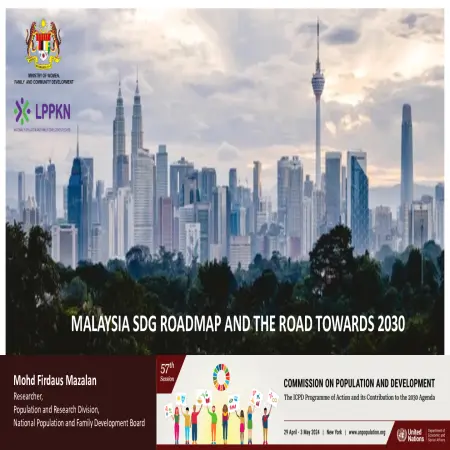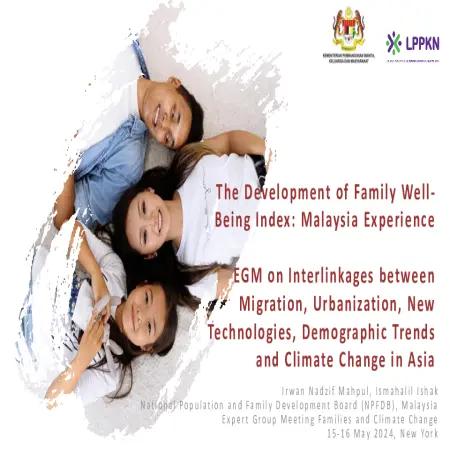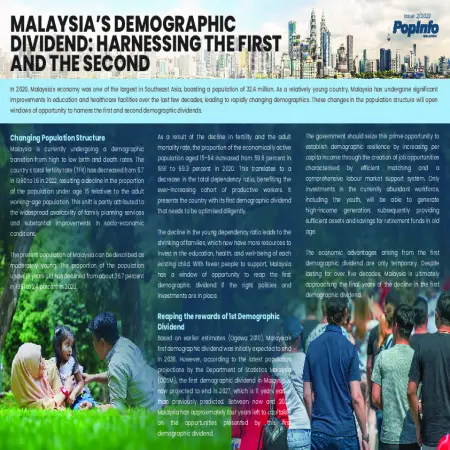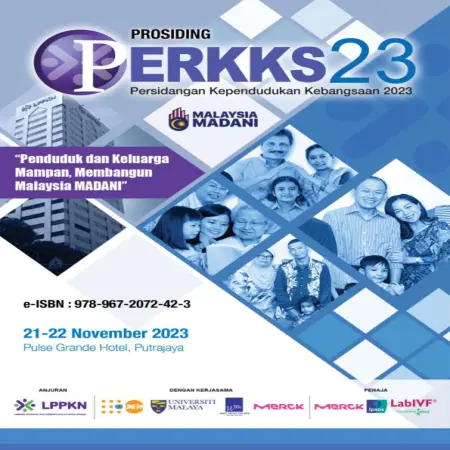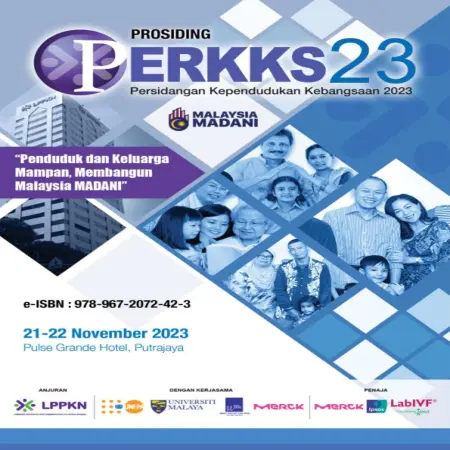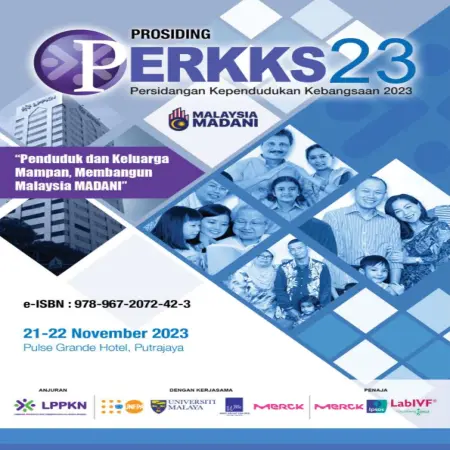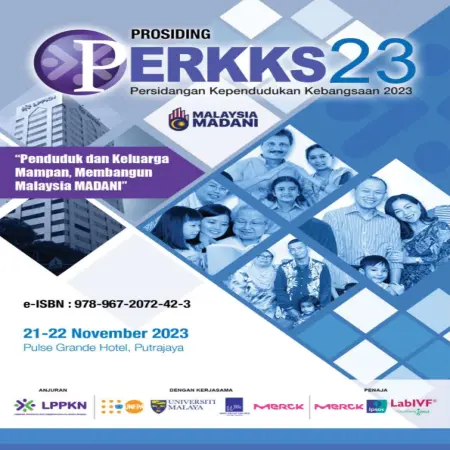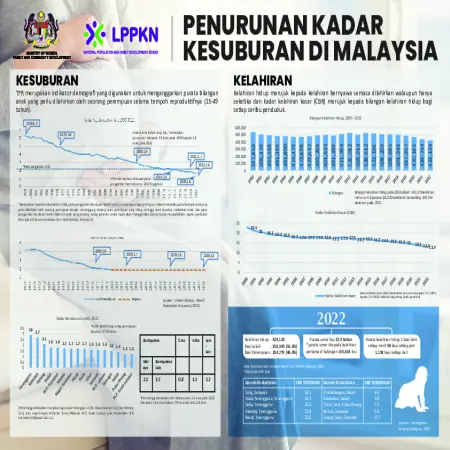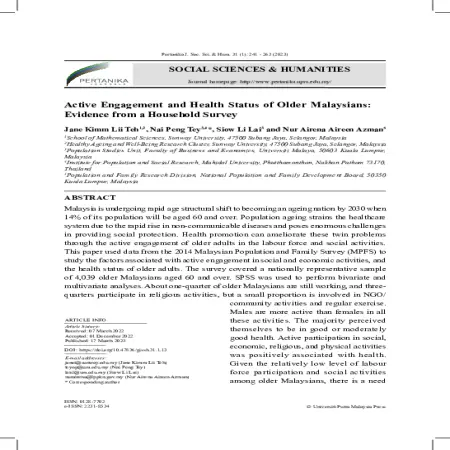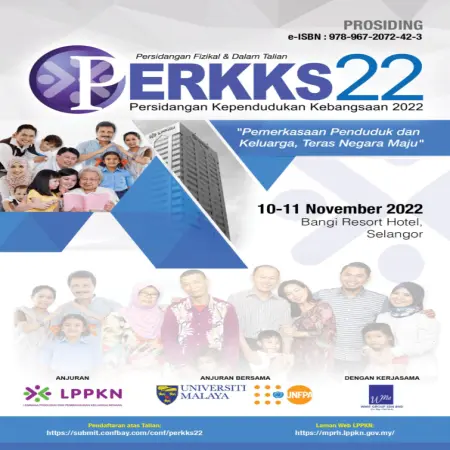TOPICS
Results for Topics : "Ageing"
|
|
Malaysia SDG roadmap and the road towards 2030
Item Type: Conference or Workshop Item
Editor:
Year: 00/05/2024
Abstract: Malaysia has undertaken periodic reviews to assess the achievement of ICPD goals and objectives. Malaysia has continuously embraced sustainable development in the national agenda. In this regard, the commitment to the 2030 Agenda for Sustainable Development (2030 Agenda) has been mapped with the Mid-Term Review of the 11th Malaysia Plan to support the Sustainable Development Goals (SDGs). The national development priorities of the Twelfth Plan continue to be aligned to the Sustainable Development Goals (SDGs) of the 2030 Agenda.
|
|
|
|
|
|
The development of Family Well-Being Index: Malaysia experience. EGM on interlinkages between migration, urbanization, new technologies, demographic trends and climate change in Asia.
Item Type: Conference or Workshop Item
Editor:
Year: 00/05/2024
Abstract: The Malaysian Family Well-Being Index (MFWBI) was initiated in 2011 by the NPFDB with the aim to measure the levels of family well-being in the country and to recommend strategic initiatives to strengthen the implementation of future family intervention programs in Malaysia. In 2016, measurement of the MFWBI was repeated using an improvised instrument. The MFWBI 2016 had maintained all the 7 domain in the MFWBI 2011 and added one more domain, namely, Family and Communication Technology. The instrument’s refinement exercise was repeated again in 2019, and 2022 in order to measure the family well-being. The purpose of the refinement exercise was to ensure that the questionnaire was valid and relevant for current and near future use. The domain in the MFWBI are Family Relationship, Family Economy, Family Health, Family Safety, Family and Community Engagement, Role of Religion & Spiritual Practice, Housing and Environment, Family and Communication Technology. At the national level, the MFWBI has been recognized by the federal government as one of the national KPI in the country’s 5-year development planning (Eleventh Malaysia Plan, 2016 -2020 and Twelfth Malaysia Plan, 2012 – 2025).
|
|
|
|
|
|
Malaysia's demographic dividend: harnessing the first and the second
Item Type: Newsletter
Editor:
Year: 00/12/2023
Abstract: In 2020, Malaysia's economy was one of the largest in Southeast Asia, boasting a population of 32.4 million. As a relatively young country, Malaysia has undergone significant improvements in education and healthcare facilities over the last few decades, leading to rapidly changing demographics. These changes in the population structure will open windows of opportunity to harness the first and second demographic dividends.
|
|
|
|
|
|
Prosiding Persidangan Kependudukan Kebangsaan 2023 (PERKKS 23): “Penduduk dan Keluarga Mampan, Membangun Malaysia MADANI”
Item Type: Book
Editor:
Year: 00/12/2023
Abstract: Collection of papers presented during the 2023 National Population Conference (PERKKS 23), 21-22 November 2023, Pulse Grande Hotel, Putrajaya.
|
|
|
|
|
|
Faktor kritikal mendepani isu dan cabaran tenaga kerja menua
Item Type: Book Section
Editor:
Year: 00/12/2023
Abstract: An aging workforce is one of the few phenomena faced by countries experiencing an aging population. This is also the case in Malaysia which has been categorized as an aging country by the World Bank since 2020. The aging workforce poses a number of issues and challenges to policy makers, employers and employees, especially those who are going through the aging process themselves.
|
|
|
|
|
|
Perceived social support, mental health and quality of life among recipients of old age financial assistence
Item Type: Book Section
Editor:
Year: 00/12/2023
Abstract: The present study examines multidimensional perceived social support, mental health and quality of life (QOL) in older adults aged 60 years and older who receive the financial assistance provided by the Department of Social Welfare. A cross-sectional study approach was conducted among 487 older adults living in Selangor, Malaysia, who are the recipients of old age financial assistance known as Bantuan Warga Emas (BWE).
|
|
|
|
|
|
The Evolution of a Progressively Graying Staff: A Bibliometric Analysis
Item Type: Book Section
Editor:
Year: 00/12/2023
Abstract: The development of research on demographic and related aspects of the ageing workforce is crucial to resolve the labour shortage issue and the increase in retirement age.
|
|
|
|
|
|
Penurunan Kadar Kesuburan Di Malaysia
Item Type: Infographic
Editor:
Year: 00/10/2023
Abstract: Total Fertility rate (TFR) is a demographic indicator used to estimate the average number of children a woman should give birth to during her reproductive period. The findings of a poll in Sarawak found that the total TFR for the state of Sarawak is decreasing drastically. 12.6% of couples have had or are experiencing fertility problems and it is difficult to conceive within a year after marriage.
|
|
|
|
|
|
Active engagement and health status of older Malaysians evidence from a household survey
Item Type: Article
Editor:
Year: 17/03/2023
Abstract: Malaysia is undergoing rapid age structural shift to becoming an ageing nation by 2030 when 14% of its population will be aged 60 and over. Population ageing strains the healthcare system due to the rapid rise in non-communicable diseases and poses enormous challenges in providing social protection.
|
|
|
|
|
|
Prosiding Persidangan Kependudukan Kebangsaan 2022 (PERKKS 22): “Pemerkasaan Penduduk dan Keluarga, Teras Negara Maju”
Item Type: Book
Editor:
Year: 00/12/2022
Abstract: Collection of papers presented during the 2022 National Population Conference (PERKKS 22), 10-11 November 2022, Bangi Resort Hotel, Selangor.
|
|
|
|





